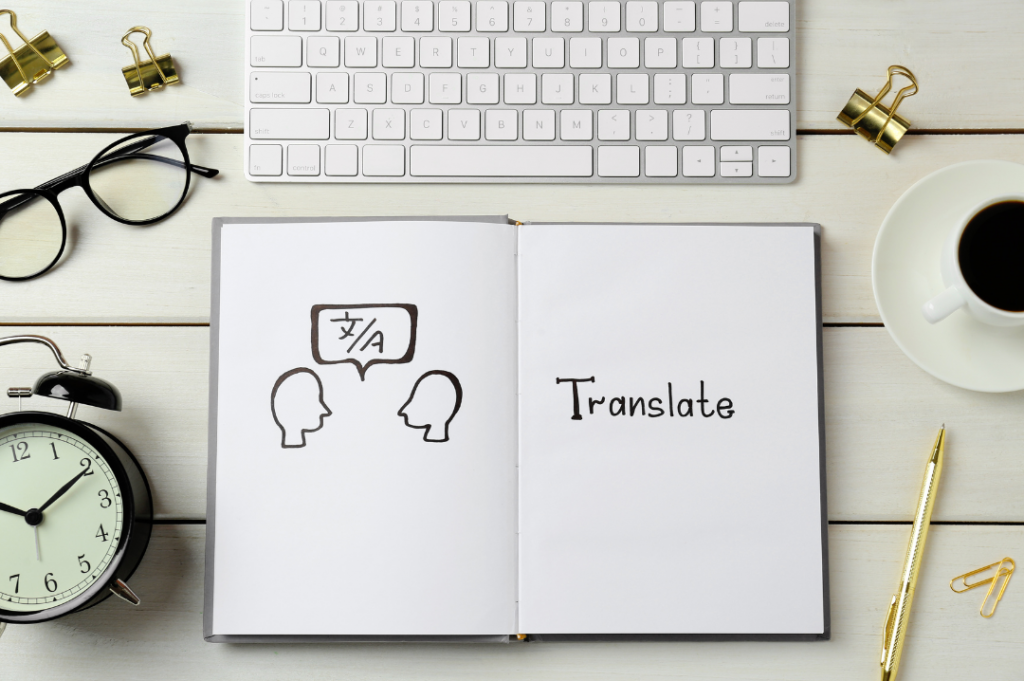Translation: Is it really that difficult to ensure our texts are well-translated?

Picture by Africa images via Canva
Everyone knows that writing well is difficult. It’s challenging even in your own language. For many years, LocalizationLab has worked in the field of translation, and we often hear from companies that they are unhappy with the translation of their texts. They are concerned that their translation suppliers aren’t doing a good enough job. We encountered the same problem when we worked at HP, on the receiving end, where we oversaw translation services.
There are many factors involved in the translation process, from good Project Management to the professionalism of translators. As in a good orchestra, everything must be well coordinated.
Translation is an art, and translators need to be excellent professionals in order to translate well. Besides knowing how to write well, a good translator must have extensive knowledge of their first language and of those languages from which they translate.
At LocalizationLab, we believe that a translator needs to meet the following requirements:
1. They should translate only into their first language.
This may seem obvious, but a translator should only translate into their mother tongue. If the translator is bilingual, as is the norm in Catalonia with Catalan and Spanish, it’s possible that the translator can translate well into either of their first languages. But they should never translate into a foreign language, regardless of how adept they are in that language.
2. They should hold a qualification in languages and/or translation.
It’s important that they have a qualification in languages and/or translation. In Spain, there is a Translation and Interpretation degree course, which can be studied at several universities. There is also a range of master’s courses available. In some countries, there is only a master’s course, but it is essential that a translator has studied languages or translation and that they have learned the rudiments of how to translate.
Both founders of LocalizationLab hold a degree in Translation and Interpretation from the UAB (Autonomous University of Barcelona). Degree in Translation and Interpretation from the UAB:
This degree course aims to train translators and interpreters to a high professional standard. The qualification is recognised both nationally and internationally for its excellence. Please visit this link to find out more information about this degree course.
3. They should work as a translator.
The art of translation requires practice, and, as in all professions, experience is crucial to improve. A professional translator who practises translation on a daily basis will have a natural sounding writing style that a person who translates sporadically will not have.
4. They should have a specialism.
In English, “to bite off more than you can chew” means that someone tries to do too much. In doing so, they do nothing well. This is true of translation, and a good translator should specialise in a particular area, whether it be technical, legal, scientific or creative translation. They must know the particular terminology for their specialism, both in the source and target language. A translator who claims to translate everything inspires little confidence. It’s difficult to do everything and do it well.
5. They should have a good quality control process in place.
A good translation needs to be done with sufficient time, and the translator should review and edit it before submitting the final piece of work. A finished translation should never be submitted with spelling mistakes, grammatical errors or mistranslations. This is why it’s essential the translator uses a thorough revision process for their work.
At LocalizationLab, we ask our translators to send us the following statements when they submit a translation:
a. Spell check;
b. Review of the translation before submitting it;
c. Use of customer’s instructions and glossary (if applicable).
In addition, on sending projects, we add the following image:

©LocalizationLab
Quality control process
An essential part of our quality control process is the joint work carried out by the translator and reviewer. At LocalizationLab, we work with two translators on every project. One person translates and the other reviews the translation. Read more about the topic in this article.
At the same time, it helps to receive comments from our customers, and we’re open to changing a translation to ensure the customer is satisfied. We’re aware that translation is highly subjective, and that there are many ways to translate a text well.
Quality has always been our primary concern, precisely because we know how difficult it is to write and translate properly. We believe that by following the above process and criteria, the outcome is likely to be a high-quality translation.
Written by LocalizationLab
